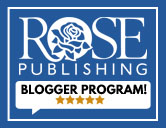
It was a shock to sports fans around the globe when Baltimore Ravens running back Ray Rice was indefinitely suspended from the team this past Monday. Known to be a “person of character” by Baltimore Ravens head coach John Harbaugh, Rice was filmed on a security camera months before suspension in an elevator beating his then-fiancee unconscious. How could someone deemed “a great guy” and a “person of character” by close friends and teammates turn without a moment’s notice into an abuser? This topic raises questions for Christians around the world about how we should treat domestic violence victims and abusers and it begs the question: “What does God say about all this?”
Rice was known to drink, but there’s usually more to it than substance abuse when it comes to domestic violence. Childhood experience, emotional instability, cultural beliefs, low self-esteem, and mental illness can all play parts in the making of an abusive cycle. Most people would agree that God is fiercely protective of the ones He loves, as we read in scripture. He delivered the Israelites from the hands of the Egyptians and the Holy Spirit’s power is more than evident in the protection of the early church and Jesus’ disciples in their journeys. But what about the other facets of domestic violence? God hates divorce (Malachi 2:16), but what does the Word say about separation due to abuse? How are we as Christians to navigate the tricky and complicated conflicts of domestic violence? How do we help victims without “getting in the middle of it all?” How do we confront abusers?
If you knew the statistic that one out of three women are victims of domestic violence, you would probably stop considering the possibility that spousal abuse isn’t prevalent enough to be talked about. June Hunt answers the questions that don’t get answered in the pulpit on Sundays in a biblical and empathetic manner in her book Domestic Violence: Assault on a Woman’s Worth.
ASK JUNE

June Says: The Bible teaches mutual submission in a loving relationship, not one-way submission in an abusive relationship. The specific biblical instruction to anyone around a hot-tempered person is separation—get out of harm’s way. Even a temporary separation could help bring about a permanent resolution and hopefully eventual reconciliation. A person with out-of-control anger must be willing to stop the abuse and get help. Many times, temporarily removing yourself from a volatile situation will prompt your abuser to seek help for fear of losing you.
The Bible gives this instruction:
“Do not make friends with a hot-tempered man, do not associate with one easily angered.” (Proverbs 22:24)
And the very next verse continues with this warning of staying in a volatile situation:
“Or you may learn his ways and get yourself ensnared.” (Proverbs 22:25)

Learn more about domestic violence and how to spot it with June Hunt’s new minibook Domestic Violence
 God designed the marriage relationship to benefit one another. He intended married couples to love, honor, and cherish each other all the days of their lives, but life doesn’t always turn out that way. In some relationships, cruelty has replaced the sacred relationship defined by God. This minibook outlines a Christian approach to help you identify and stop physical and emotional abuse.
God designed the marriage relationship to benefit one another. He intended married couples to love, honor, and cherish each other all the days of their lives, but life doesn’t always turn out that way. In some relationships, cruelty has replaced the sacred relationship defined by God. This minibook outlines a Christian approach to help you identify and stop physical and emotional abuse.
In too many homes around the world, the marriage bond has become bondage—shared lives have become shattered by abuse. Husbands berate, belittle, and betray their wives. Yet these secret assaults stay hidden from the outside world. Whether you are personally in an abusive relationship or know someone who is, find out how to identify different types of abuse and learn strategies for dealing with abuse.
It answers key questions:
- Why does a man become abusive?
- Why does an abused women stay?
- What is God’s heart on abuse?
- How do you respond as the friend of the abused?
Click here now to get the minibook or to instantly equip yourself with the PDF!
Recommended resource for pastors, church leaders, concerned friends and family members.
Are you in need of help or think you may be in an abusive situation? Call 1-800-488-HOPE (4673) for the Hope Care Center.


